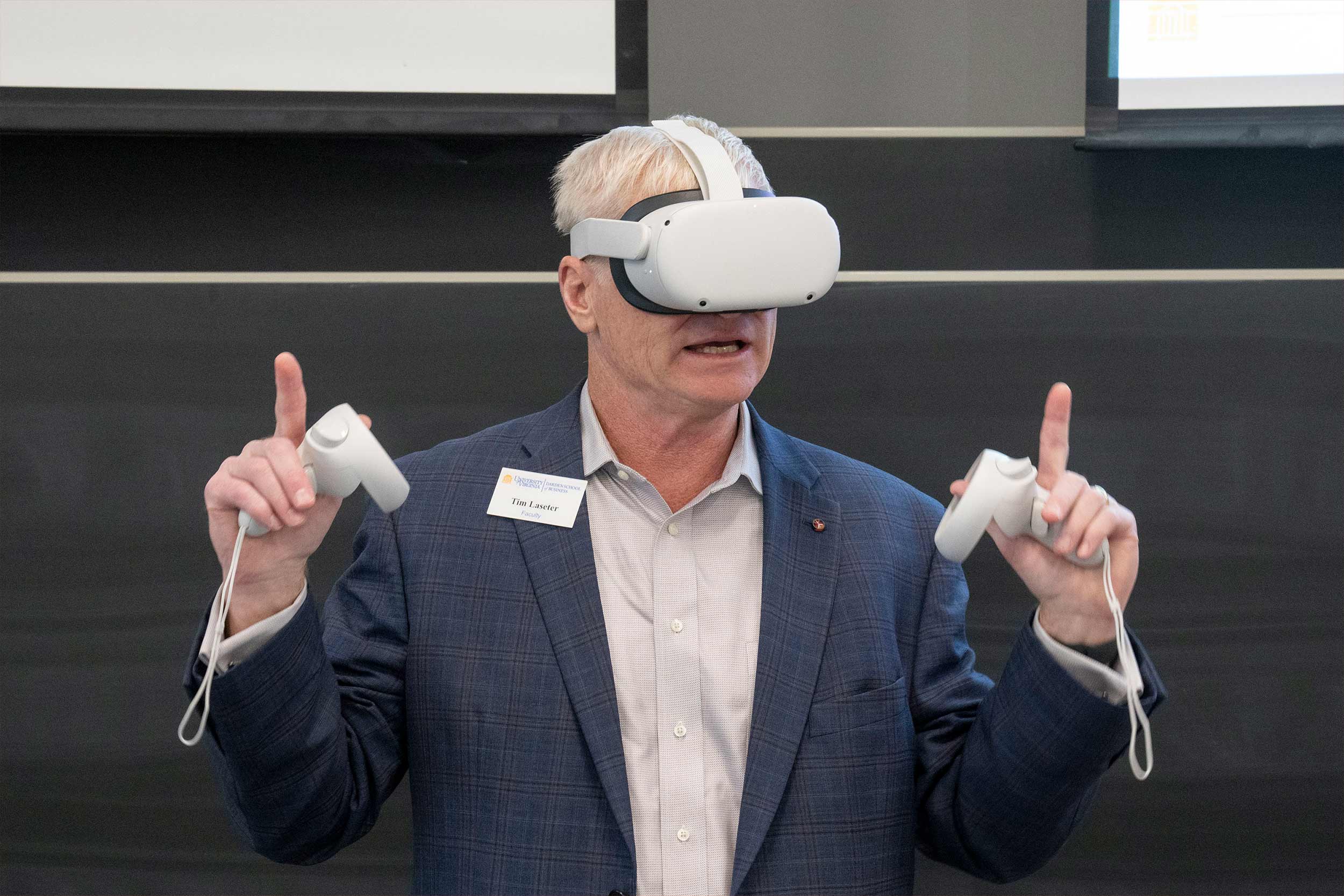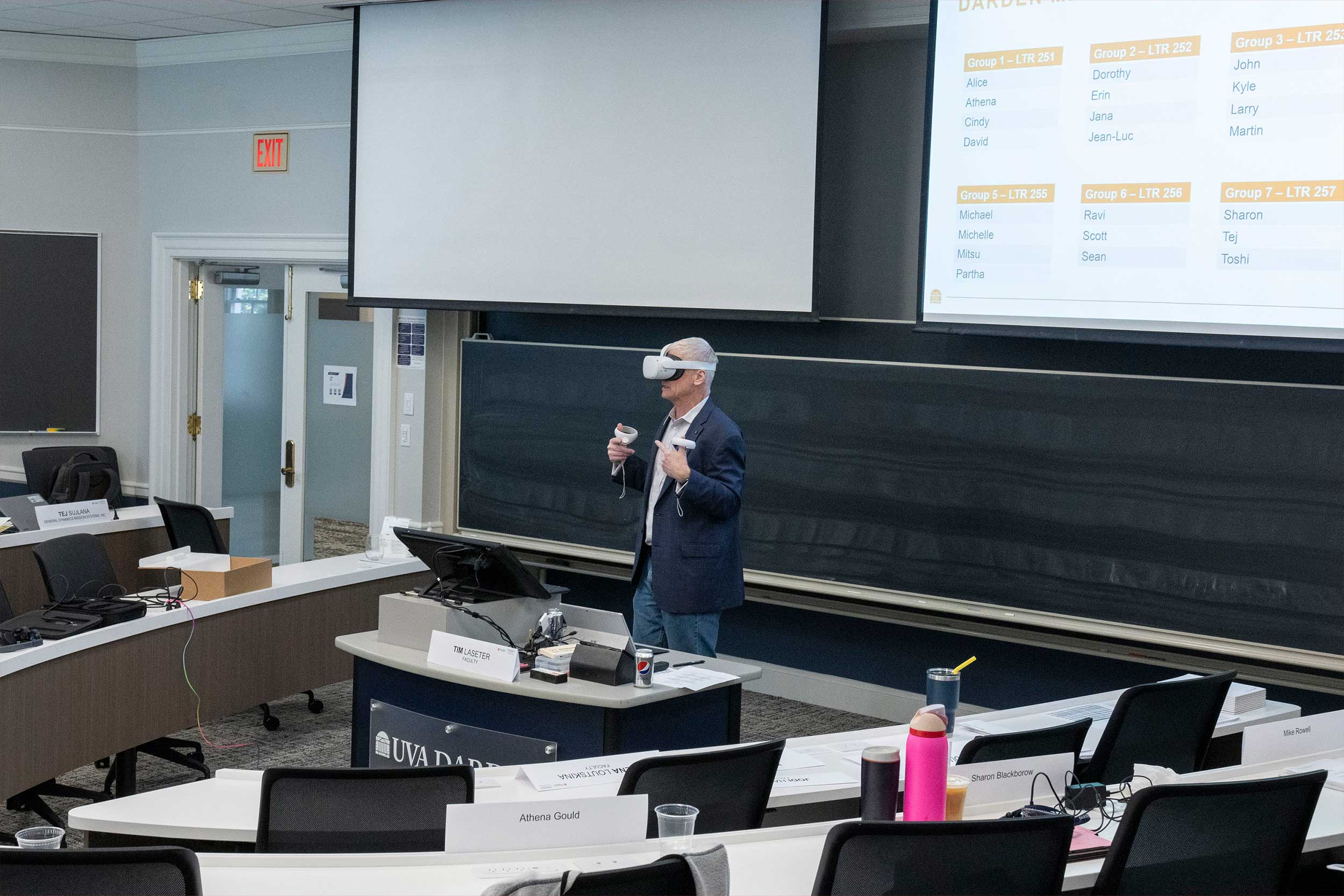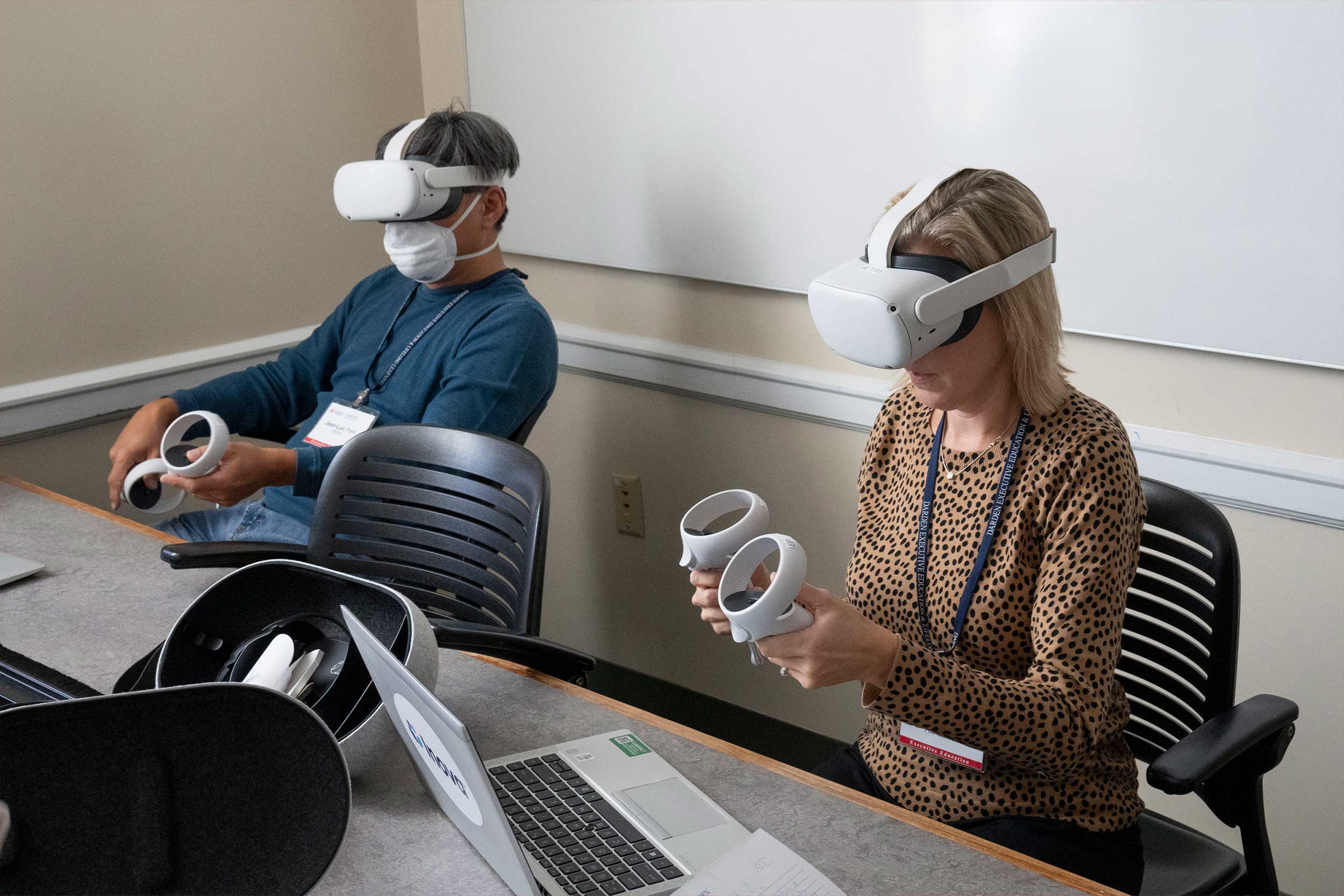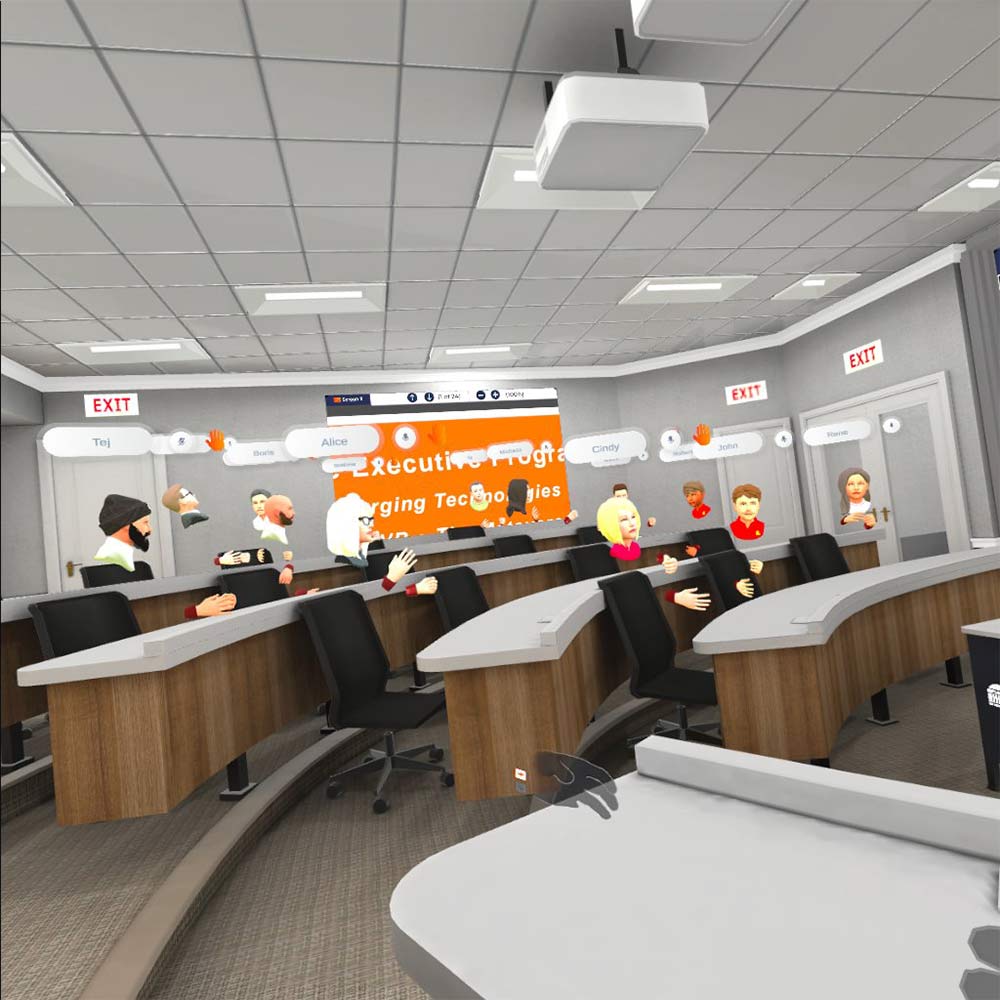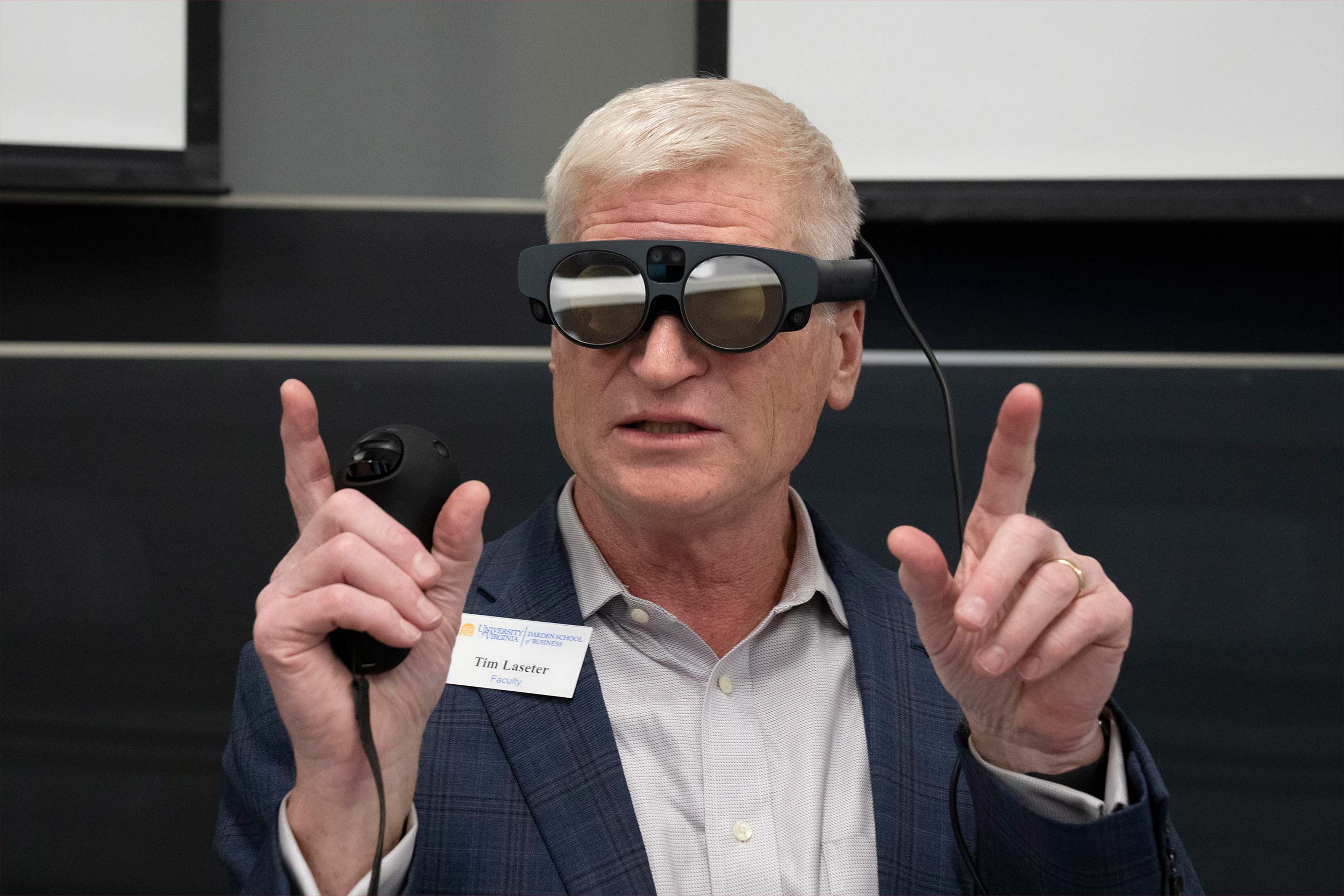So, no, Laseter wasn’t talking to himself. He was using a virtual reality headset to speak to the 30 students he was seeing through his goggles and helping them find open seats during a Bega-featured game of musical chairs.
The students, also equipped with VR headsets, were in a series of rooms down the hall from Laseter. But they were all looking at the same thing – a virtual classroom identical to the one they had physically occupied just an hour earlier.
“It’s very accurate,” said Erin Hodson, a student in the program and a vice president at Inova Health System in Northern Virginia. “As I turned my head and looked at the ground, I could see everything around me.”
That view just might be a glimpse at the future of education.
Darden’s Anne Trumbore is the chief digital learning officer within the school’s Sands Institute for Lifelong Learning team. Last year, after learning from faculty members that a number of Darden alumni have begun using the metaverse to enhance their own businesses, Trumbore commissioned a study that discovered 10 universities nationwide were investing in this kind of technology for higher education.
“And we started talking to the companies who were doing the work for them,” Trumbore said, “and they started showing us demonstrations of what was possible.”
Darden leaders were intrigued and soon, thanks to help from the Frank M. Sands donation, worked to create a metaverse version of a Darden classroom to use in The Executive Program as a pilot.
Normally, The Executive Program is set up for in-person classes over two weeks in the fall and in the spring, with a variety of Zoom meetings in between. This year, the Zoom meetings are being replaced with discussions in Darden’s virtual classroom, which the students tried out last week.
“We aren’t trying to replace the Darden School,” Trumbore said. “We’re just trying to bring the classroom to life and let these business leaders be aware of these new technologies.”
“I’m not saying metaverse is the answer,” she continued, “but metaverse does allow you to be in different physical locations and meet in a way that’s not just interacting through a flat screen.”
Among the key discoveries in the Darden-commissioned study was that a professor at Morehouse College found that students learning in the metaverse had higher final grades, performed better on essays and had higher attendance rates than students in the same course learning through traditional on-campus or online delivery.
While it’s an experiment for the non-traditional students in The Executive Program, it could lead to advancements for traditional students at UVA, Trumbore said.
“The purpose is to give our participants experience with the newest technologies,” she said. “And it’s also to get our faculty comfortable with these technologies and thinking about how you use them in the classroom so that we can be more adaptive as these new technologies roll on.
“The metaverse is really a steppingstone for whatever is coming next.”
Adhering to a Darden philosophy, Laseter said he likes to have students think about could happen in the future instead of predicting something is certain to happen. It’s why he sees the benefits of the new wrinkle within The Executive Program.
“If we are on this path,” he said, “I think our students need to understand where these technologies are going and figure out how to adapt.”
In addition to the VR headset, Laseter’s Executive Program students have also played with a Magic Leap augmented reality headset that superimposes 3D-generated imagery in a real-world landscape.
Hodson, the executive visiting from Inova Health System, said adapting this technology could be a boon for the medical community.
“I think about telehealth,” she said, “where you really need the intellect of a physician thinking and being able to see clearly what’s going on in the room with a patient.
“We have that now with video, but this would be a whole other level.”
Hodson’s line of thinking aligns with Laseter’s goal for the program.
“It’s a small-scale investment for us to experiment with all of this,” he said. “We’re bringing in this technology for them to think about how they can apply this in their business. It’s why we demo and ask, ‘What could you do with this?’”
